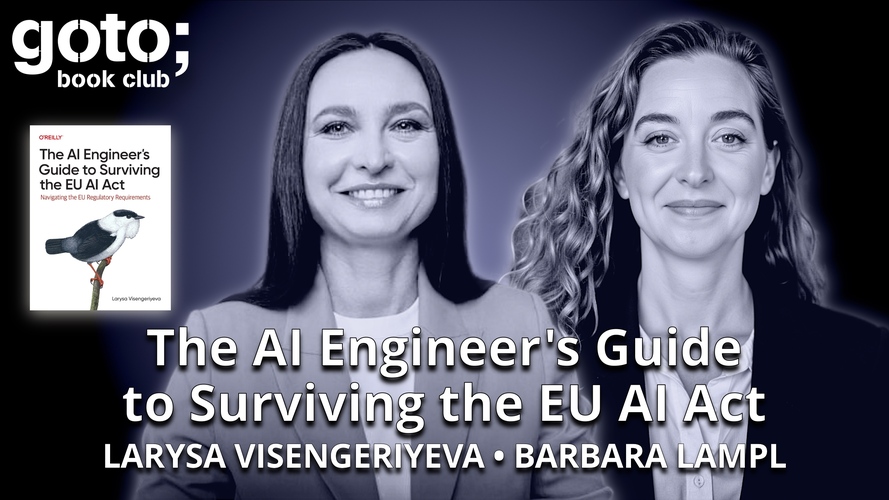artificial intelligence (AI)

Your AI Survival Guide

The Programmer’s Apprentice Season 2: Advancements and Future Directions in AI-assisted Coding

The Programmer’s Apprentice Season 2: Advancements and Future Directions in AI-assisted Coding

CodeConcise: A New Era for Legacy Modernisation

Ethics in AI's Wild West: Biases & Responsibilities

Building Practical, Cost-Efficient GenAI Solutions Using Serverless

How to Lead your Organisation’s AI-transformation: Strategies, Skills, and Culture

Improving Business Decision Making with Bayesian Artificial Intelligence

Machine Learning, Your First Steps

The Programmer’s Apprentice Season 2: Advancements and Future Directions in AI-assisted Coding

Inside GPT – Large Language Models Demystified

Improving Business Decision Making with Bayesian Artificial Intelligence

How to Lead your Organisation’s AI-transformation: Strategies, Skills, and Culture

Enhancing Productivity with Tools, Aesthetics & AI

Lexical, Vector and Hybrid Search with Elasticsearch
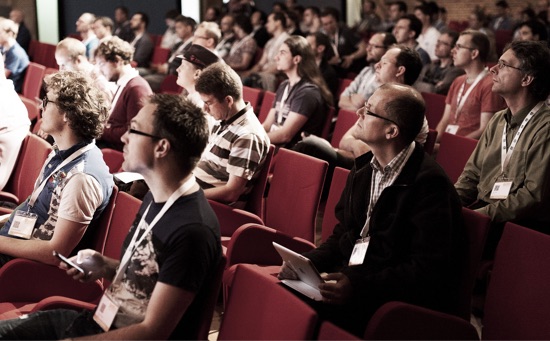
A Fun & Absurd Introduction to Vector Databases

How to Lead your Organisation’s AI-transformation: Strategies, Skills, and Culture

From Tic Tac Toe to AlphaGo: Playing games with AI
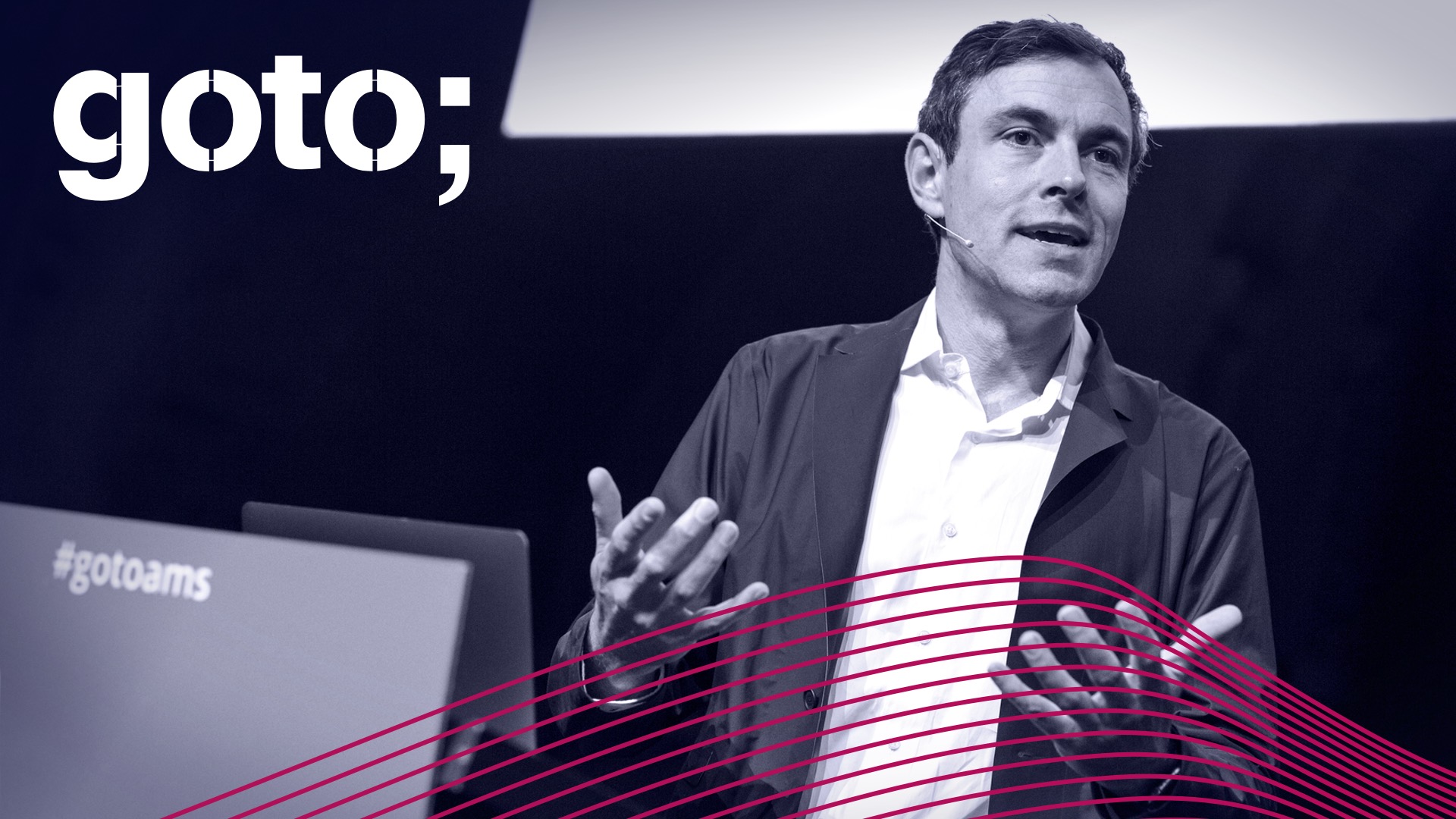
AI/ML, Quantum Computing and 5G – Opportunities, Challenges and the Impact on Society

Navigating AI's Impact

Building Owly an AI Comic Video Generator For My Son

It's All About AI - Promises and Challenges in Computer Vision and NLP

A Hybrid Intelligence Approach to Developing Generative AI Applications

On the Road to Artificial General Intelligence

Machine Learning on Source Code

Machine Learning with TensorFlow and Google Cloud

Your Superpower User Manual

One does not simply put Machine Learning into Production

Human-Computer Partnerships

Beyond AI

Artificial Intelligence Reloaded - AI Applications in the Industry

The Promise and Limitations of AI

Computers are Stupid: Protecting "AI" from Itself

Build a Q&A Bot with DeepLearning4J

Inextricably Linked: Reproducibility and Productivity in Data Science and AI

Code + AI: Will Robots Take Our Coding Jobs?" Machine Learning Applied to Programming

TensorFlow Lite: how to Accelerate your Android and iOS App with AI

Best Practices for Real-time Intelligent Video Analytics

Who's Afraid of the Black Box Models?
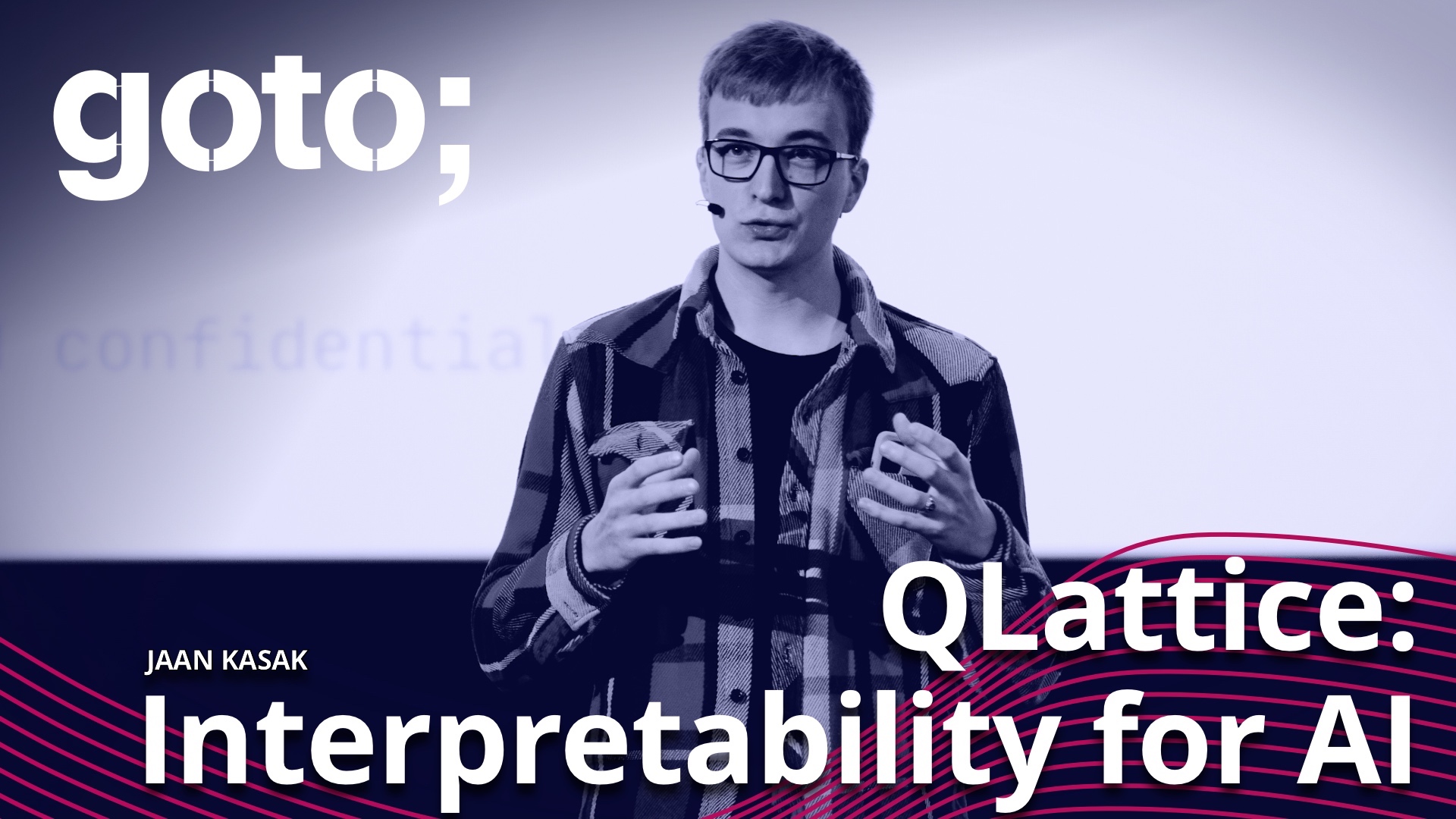
Abzu’s Pioneering Technology, the QLattice®, Introduces a New Standard of Interpretability to Artificial Intelligence

How Corsearch Manages Software Delivery at Scale

Large Language Models: Friend, Foe, or Otherwise

A Composer’s Guide to Creating with Generative Neural Networks

Web3 Beyond Blockchains

Hello Deep Learning

Empowering Consumers: Evolution of Software in the Future

Addressing Algorithmic Bias

Unleash the Power of Large Language Models (LLMs)

Responsible AI for Engineers

Why Aren't You A Data-Driven AI Company Yet?

Taking Machine Learning Research to Production: Solving Real Problems

The Promise and Limitations of AI

Thinking Like a Data Scientist

Composing Bach Chorales Using Deep Learning

The Future of Machine Learning & JavaScript

#DigitalNudge - The Hidden Forces that Shape our Digital Decisions

Conversational AI Demystified

Breaking Language Barriers with AI

Building a Self-driving RC Car

Beyond Chat: Bringing Models to The Canvas

Skills for the Age of AI

Concerto for Java and AI - Building Production-Ready LLM Applications

How AI & DevOps Are About to Change the Way We Create Products

Analogue Evolution, Digital Revolution: Tipping Points in Technology

Analogue Evolution, Digital Revolution: Tipping Points in Technology

Coding Will Never Be The Same Again

AI Assistance Beyond Code: What Do We Need to Make it Work?

Analogue Evolution, Digital Revolution: Tipping Points in Technology

Coding Will Never Be The Same Again

Code Generation in 2024: How AI Will Take Your Job...to the Next Level!

Beyond Chat: Bringing Models to The Canvas

Concerto for Java and AI - Building Production-Ready LLM Applications

Building Agentic AI systems with AWS Serverless

From Neural Networks to Digital Brains: The Next Leap in AI

Beyond the Hype: Real Talk on AI-Assisted Development

Unraveling Insights About Places with Deep Learning Computer Vision

Inside GPT – Large Language Models Demystified

Event Streaming for Multi-Agentic Generative AI Workflows

Beyond Chat: Bringing Models to The Canvas

Prompt Engineering for Generative AI

Hacking AI Systems: How to (Still) Trick Artificial Intelligence

AI agents in practice

Leading 3000 Developers into the Next Era of Software Engineering

Beyond Chat: Bringing Models to The Canvas

The Death of Classical Computer Science

Fundamentals of Data Engineering

State of the Art of Spring AI

State of the Art of AI Tools in Micro-Frontend Architectures

CodeConcise: A New Era for Legacy Modernisation

Reflections of AI: A Trilogy in Four Parts

State of the Art of Prompt Engineering

The AI Engineer's Guide to Surviving the EU AI Act

From Apache Spark to Fighting Health Insurance Denials

State of the Art of DORA Metrics & AI Integration

Handling AI-Generated Code: Challenges & Best Practices

It's All About AI - Promises and Challenges in Computer Vision and NLP

It's All About AI - Promises and Challenges in Computer Vision and NLP

Machine Learning, Your First Steps

Machine Learning with TensorFlow and Google Cloud

Machine Learning with TensorFlow

Unraveling Insights About Places with Deep Learning Computer Vision

Composing Bach Chorales Using Deep Learning

Build a Q&A Bot with DeepLearning4J

Deep Learning: What It Is and What It Can Do For You

(Deep) Learning to Fly

Hello Deep Learning

Deep Learning for Developers

Computers are Stupid: Protecting "AI" from Itself

Unraveling Insights About Places with Deep Learning Computer Vision

Unraveling Insights About Places with Deep Learning Computer Vision

Machine Learning For Web3: Realizing The Potential and The Challenge of Censorship Resistance

ChatGPT from Scratch: How to Train an Enterprise AI Assistant

Large Language Models: Friend, Foe, or Otherwise

Reinforcement Learning - ChatGPT, Playing Games, and More

Machine Learning For Web3: Realizing The Potential and The Challenge of Censorship Resistance

Large Language Models: Friend, Foe, or Otherwise

The Death of Classical Computer Science

The Programmer’s Apprentice Season 2: Advancements and Future Directions in AI-assisted Coding

The Programmer’s Apprentice Season 2: Advancements and Future Directions in AI-assisted Coding

Coding Will Never Be The Same Again

Beyond the Hype: A Realistic Look at Large Language Models

How Much Trust Do You Have with LLM-Based Solutions?

Coding Will Never Be The Same Again

The Programmer’s Apprentice Season 2: Advancements and Future Directions in AI-assisted Coding

Hello Deep Learning

Building Owly an AI Comic Video Generator For My Son

Unleash the Power of Large Language Models (LLMs)

Pragmatic Microservices for Organisational Scalability

On the Road to Artificial General Intelligence

On the Road to Artificial General Intelligence

Machine Learning on Source Code

Unleash the Power of Large Language Models (LLMs)

How we Built Google Tulip by using Serverless Technology and Machine Learning

Your AI Survival Guide

Delivering AI on Code: Live Demo of source{d}

How Corsearch Manages Software Delivery at Scale

Machine Learning with TensorFlow and Google Cloud

Breaking Black-box AI

Using Kubernetes for Machine Learning Frameworks

Using Kubernetes for Machine Learning Frameworks

Conversation AI, the new User Experience

TensorFlow Lite: how to Accelerate your Android and iOS App with AI

A Code-Driven Introduction to Reinforcement Learning

Large Language Models: Friend, Foe, or Otherwise

A Hybrid Intelligence Approach to Developing Generative AI Applications

Predicting Optimal Temperature in The Transmission System (CTR)

Your Superpower User Manual

Applied AI: Real-World Use Cases for Microsoft’s Azure Cognitive Services

Production Model Deployment

Artificial Intelligence Reloaded - AI Applications in the Industry

Exploring StackOverflow Data

Computers are Stupid: Protecting "AI" from Itself

Build a Q&A Bot with DeepLearning4J

Keys to Building Machine Learning Systems

Small is the New Big: Designing Compact Deep Learning Models

Who's Afraid of the Black Box Models?

Uncluster Your Data Science Using Vaex

A Composer’s Guide to Creating with Generative Neural Networks

Scaling Python for Machine Learning: Beyond Data Parallelism

Empowering Consumers: Evolution of Software in the Future

Developing Machine Learning for Impact

ChatGPT from Scratch: How to Train an Enterprise AI Assistant

Analogue Evolution, Digital Revolution: Tipping Points in Technology

Analogue Evolution, Digital Revolution: Tipping Points in Technology

Analogue Evolution, Digital Revolution: Tipping Points in Technology

Unraveling Insights About Places with Deep Learning Computer Vision

Event Streaming for Multi-Agentic Generative AI Workflows

The AI Engineer's Guide to Surviving the EU AI Act

Keep it Clean: Why Bad Data Ruins Projects and How to Fix it

Deep Learning in Medicine: An Introduction and Applications to Next-generation Sequencing and Disease Diagnostics

Deep Learning for Developers

Building a Smart Security Camera with Raspberry Pi Zero, Java and AWS

Reinforcement Learning - ChatGPT, Playing Games, and More

Machine Learning For Web3: Realizing The Potential and The Challenge of Censorship Resistance

Machine Learning with TensorFlow

Building Practical, Cost-Efficient GenAI Solutions Using Serverless

Deep Learning: What It Is and What It Can Do For You

Composing Bach Chorales Using Deep Learning

Cloud-Native Data Science: Turning Data-Oriented Business Problems Into Scalable Solutions

Machine Learning, Your First Steps

One does not simply put Machine Learning into Production

Human-Computer Partnerships

Beyond AI

Accelerating Machine Learning DevOps with Kubeflow

The Promise and Limitations of AI

(Deep) Learning to Fly

Machine Learning: Alchemy for the Modern Computer Scientist

Thinking Like a Data Scientist

From Tic Tac Toe to AlphaGo: Playing games with AI

Augmented Reality, Beyond Virtual Objects Floating in Physical Space

Augmented Reality and Machine Learning cooperation on Mobile

Online Safety Bill: How Global Platforms Use MLOps to Keep People Safe

Breaking Language Barriers with AI

Augmented Reality, Beyond Virtual Objects Floating in Physical Space

Prompt Engineering for Generative AI
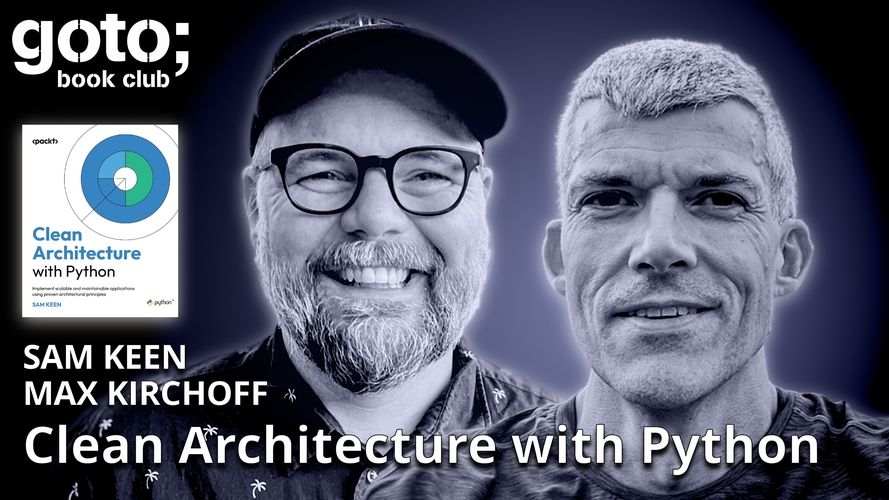
Clean Architecture with Python


How to Leverage Reinforcement Learning

Genetic Algorithms in Elixir

Data Mesh: Delivering Data-Driven Value at Scale

Kubeflow for Machine Learning

The Best of GOTO Book Club Part Two

The Quick Python Book

AI, ML & Data Science: What's the Difference?

What is General Artificial Intelligence

Honoring the Legacy of Doug Lenat, a Visionary and AI Guru

Top Trends in Software Development That You Should Know About

Software 2.0 and AI as an Engineering Discipline

What Does It Take To Be a Data Scientist?

Simplifying Dev Environments With the Right Tools

Navigating AI's Impact

How to Deal with Software Complexity

Maps, AI, and the Future of Reasoning: A Conversation with Simon Wardley

Natural Language Processing in Real-life: Introduction

Machine Learning for Autonomous Vehicles

Natural Language Processing in Real-life: Introduction

How AutoML & Low Code Empowers Data Scientists

Natural Language Processing in Real-life: Introduction

AI, ML & Data Science: What's the Difference?

What is Data Science and Where is it Heading?

What is General Artificial Intelligence

The Importance of Reinforcement Learning with Phil Winder

How a Machine Learning Project Can Go Wrong

Software 2.0 and AI as an Engineering Discipline

Is Machine Learning a Black Box?

Natural Language Processing in Real-life: Introduction

How AutoML & Low Code Empowers Data Scientists

What Does It Take To Be a Data Scientist?

Machine Learning for Autonomous Vehicles

Alex Castrounis
Why of AI
Founder & CEO at Why of AI, NU Kellogg MBAi Professor, Author | Former INDYCAR Engineer, Race Strategist, and Data Scientist

Sean Moriarity
Author of Genetic Algorithms in Elixir and Machine Learning in Elixir, co-creator of Nx.

Jacob Sherson
Aarhus University
Founding director of Center for Hybrid Intelligence and ScienceAtHome.org

Doug Lenat
Cycorp
Award-winning AI pioneer who created the landmark Machine Learning program-AM

Dean Wampler
IBM Research
Product Engineering Director for Accelerated Discovery, IBM Research.

Kristian Hammond
Northwestern University
Professor and Director of The Center for Advancing Safety of Machine Intelligence

Christoph Windheuser
Databricks
Building applications fast in high quality, based on data and AI

Joe Reis
Ternary Data
Co-Author of "Fundamentals of Data Engineering", Speaker, Professor & Podcaster

Katie Paxton-Fear
Manchester Metropolitan Uni...
Occasional Bug Bounty Hunter and Educational YouTuber

Sam Keen
AlterCraft
Founder & Researcher at AlteredCraft & Author of “Clean Architecture with Python”

Nicholai Stålung
Trifork
Data scientist who has spawned and led multiple data science and ML teams

Nicholai Stålung
Trifork
Data scientist who has spawned and led multiple data science and ML teams

Alex Castrounis
Why of AI
Founder & CEO at Why of AI, NU Kellogg MBAi Professor, Author | Former INDYCAR Engineer, Race Strategist, and Data Scientist

Sean Moriarity
Author of Genetic Algorithms in Elixir and Machine Learning in Elixir, co-creator of Nx.

Kristian Hammond
Northwestern University
Professor and Director of The Center for Advancing Safety of Machine Intelligence

Erik Meijer
Director of engineering at Facebook; "Think Like A Fundamentalist, Code Like A Hacker"
Browse all tags
Here

